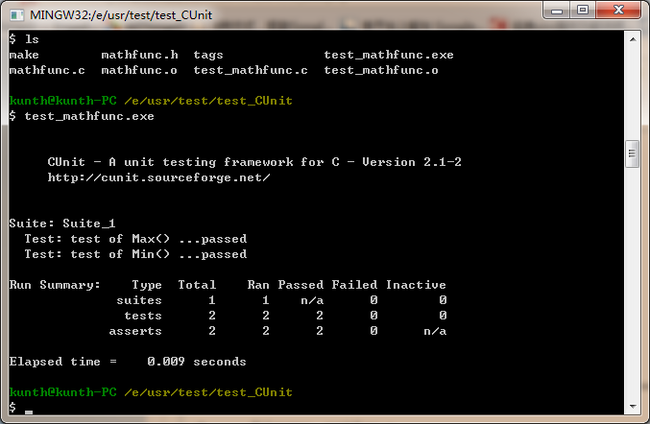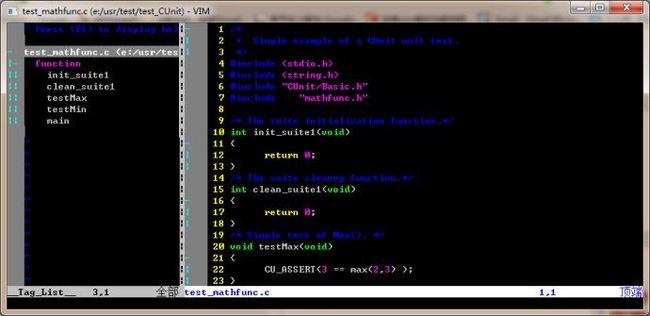- 求解一次最佳平方逼近多项式
F_D_Z
数理数值分析一次最佳平方逼近多项式
例设f(x)=1+x2f(x)=\sqrt{1+x^2}f(x)=1+x2,求[0,1][0,1][0,1]上的一个一次最佳平方逼近多项式。解:d0=∫011+x2dx=12ln(1+2)+22≈1.147d_0=\int_{0}^{1}\sqrt{1+x^2}dx=\frac{1}{2}\ln(1+\sqrt{2})+\frac{\sqrt{2}}{2}\approx1.147d0=∫011+
- 勒让德多项式
F_D_Z
数理数值分析勒让德多项式Legendre
勒让德多项式(Legendre)当区间为[−1,1][-1,1][−1,1],权函数ρ(x)=1ρ(x)=1ρ(x)=1时,由1,x,...,xn,...{1,x,...,x^n,...}1,x,...,xn,...正交化得到的多项式称为勒让德多项式,并用P0(x),P1(x),...,Pn(x),...P_0(x),P_1(x),...,P_n(x),...P0(x),P1(x),...,Pn(
- 蓝桥杯练习day1:统计能整除数字的位数
你今天刷题了吗?
蓝桥杯算法职场和发展
前言给你一个整数num,返回num中能整除num的数位的数目。如果满足nums%val==0,则认为整数val可以整除nums。示例1:输入:num=7输出:1解释:7被自己整除,因此答案是1。示例2:输入:num=121输出:2解释:121可以被1整除,但无法被2整除。由于1出现两次,所以返回2。示例3:输入:num=1248输出:4解释:1248可以被它每一位上的数字整除,因此答案是4。代码1
- python类方法和类的实例化
Cachel wood
程序设计杂事python开发语言mysqlhivesql机器学习数据库
文章目录类方法实例方法类方法静态方法特殊方法私有方法Python类的实例化1.调用`__new__`方法2.调用`__init__`方法3.返回实例对象总结类方法在Python里,类的自定义方法是类中用户自行定义的函数,这些方法能够实现特定的功能,并且可以访问和操作类的属性。下面详细介绍Python类中常见的自定义方法。实例方法定义:实例方法是类中最常见的方法,它的第一个参数通常是self,代表类
- 图论并查集小结
_C9
并查集
这周学习了并查集的有关内容,简单说一下并查集并查集主要用于处理一些不相交集合的合并问题。。使用并查集时,第一步会存在一组不相交的动态集合,一般都会使用一个整数表示集合中的一个元素。每个集合可能包含一个或多个元素,并选出集合中的某个元素作为代表。每个集合中具体包含了哪些元素是不关心的,具体选择哪个元素作为代表一般也是不关心的。我们关心的是,对于给定的元素,可以很快的找到这个元素所在的集合(的代表),
- 机器视觉工程师必须知道读码器如何选型
视觉人机器视觉
杂说数码相机3d人工智能c#
一、明确核心需求应用场景工业场景(产线、仓储):需高防护等级(IP65+)、抗震动/冲击、宽温工作(-20℃~50℃)。商业场景(零售、物流):注重扫描速度、多码兼容性(一维/二维码混合)。移动场景(手持设备、AGV):选择无线连接(蓝牙/Wi-Fi)、轻便设计。特殊环境(高粉尘、强光):需配备强光源补偿、高帧率图像传感器。码的类型一维码:传统激光扫描器(成本低)或线性图像式扫描器(破损码容错)。
- 2024年六大勒索攻击事件大盘点,“反勒索”思维助企业提前破局
科技云报道
反勒索
超20亿美元,这是2024年一场勒索攻击企业带来的直接经济损失。然而,这场攻击的“代价”远不止于此。这是真实发生在美国的事件。据安全内参消息,去年2月,美国医疗IT公司ChangeHealthcare遭受了勒索攻击,导致数字服务中断整整9个月,直至2024年12月,仍然有少量业务功能未恢复。作为美国最大的医疗支付处理公司之一,ChangeHealthcare每年处理约150亿笔交易,此次攻击不仅对
- vue3 element plus 双击文字复制文字并提示复制文字成功
weixin_42220130
Elementplusvue复制复制elementplusvue3拷贝文字
vue3elementplus双击文字复制文字并提示复制文字成功步骤分析具体实现代码解释运行项目下面将详细介绍如何在Vue3结合ElementPlus实现双击文字复制文字并提示复制成功的功能。步骤分析创建Vue3项目:使用Vite或VueCLI创建一个新的Vue3项目。安装ElementPlus:在项目中安装ElementPlus组件库。实现双击复制功能:在组件中监听文字的双击事件,当双击时将文字
- python 输入一行字符串 删除其中所有大写字母后输出_Python练习题3.17删除字符
weixin_39624873
python输入一行字符串删除其中所有大写字母后输出
输入一个字符串str,再输入要删除字符c,大小写不区分,将字符串str中出现的所有字符c删除。输入格式:在第一行中输入一行字符在第二行输入待删除的字符输出格式:在一行中输出删除后的字符串输入样例:在这里给出一组输入。例如:beee输出样例:在这里给出相应的输出。例如:result:b代码如下:#!/usr/bin/python#-*-coding:utf-8-*-s=input().strip()
- AI人工智能代理工作流AI Agent WorkFlow:设计智能任务处理流程
AI天才研究院
计算AI大模型企业级应用开发实战DeepSeekR1&大数据AI人工智能大模型计算科学神经计算深度学习神经网络大数据人工智能大型语言模型AIAGILLMJavaPython架构设计AgentRPA
AI人工智能代理工作流AIAgentWorkFlow:设计智能任务处理流程作者:禅与计算机程序设计艺术/ZenandtheArtofComputerProgramming1.背景介绍1.1问题的由来在当今的数字化时代,随着数据量的爆炸式增长和复杂性的提升,传统的手动任务处理方式已经无法满足高效、准确的需求。人工智能技术的发展为自动化任务处理提供了新的可能性。AI人工智能代理(AIAgent)作为一
- 98-二叉树-验证二叉搜索树
Hello_Git
javascript
树|深度优先搜索|二叉搜索树|二叉树一、二叉搜索树(BST)的性质首先,了解二叉搜索树(BinarySearchTree,BST)的定义和性质是解决这类问题的基础。BST的定义左子树:节点的左子树只包含小于当前节点的数。右子树:节点的右子树只包含大于当前节点的数。递归性质:左子树和右子树本身也必须是二叉搜索树。简单来说,BST具有以下特点:中序遍历BST可以得到一个递增的有序序列。每个节点的值都大
- 蓝桥杯练习-3.17
梨绘小棠
蓝桥杯贪心算法c++
蓝桥杯练习-3.17代码练习•旅行家的预算-贪心问题描述一个旅行家想驾驶汽车以最少的费用从一个城市到另一个城市(假设出发时油箱是空的)。给定两个城市之间的距离D1、汽车油箱的容量C(以升为单位)、每升汽油能行驶的距离D2、出发点每升汽油价格P和沿途油站数N(N可以为零),油站i离出发点的距离Di、每升汽油价格Pi(i=1,2,……N)。计算结果四舍五入至小数点后两位。如果无法到达目的地,则输出“N
- 使用Deepseek书写一篇综述论文,如何提示?
学术乙方
小知识经验分享
使用DeepSeek撰写综述论文时,可以通过以下提示和步骤来高效完成任务:明确研究主题与范围在开始撰写之前,首先需要明确研究主题、文献综述的时间跨度、地理范畴和文献类型。这有助于聚焦研究方向,避免偏离主题。制定详细的提示词提示词的设计是高效利用DeepSeek的关键。可以参考以下模板:研究背景与现状:请帮我梳理XXX领域的研究背景与现状,包括国内外的主要研究成果和研究热点。文献筛选与阅读:请帮我筛
- Linux:kubeadm⽅式部署k8s集群
陈婷婷1
linuxkubernetes运维服务器容器
1.kubeadm创建环境k8s-master192.168.150.11k8s-node1192.168.150.12k8s-node2192.168.150.13三台节点都安装docker#Step1:安装必要的一些系统工具sudoyuminstall-yyum-utilsdevice-mapper-persistent-datalvm2#Step2:添加软件源信息sudoyum-config
- 洛谷P2678[NOIP2015]跳石头(二分算法)
猪猪成
C++笔记洛谷算法c++
题目:AC通过图如下简短的AC代码如下:#include#includeusingnamespacestd;intmain(){intl,n,m;cin>>l>>n>>m;intarr[50001];intnow,left,right,mid;left=0;right=l;//给2位置变量初始化数值;for(inti=1;i>arr[i];}arr[0]=0;intsum;//记录搬走的石块总和;
- 《Linux运维总结:基于银河麒麟V10+ARM64架构部署多机elasticsearch7.17.21分布式集群+单机kibana7.17.21二进制版ssl集群》
东城绝神
《Linux运维实战总结》运维linuxelasticsearchssl
总结:整理不易,如果对你有帮助,可否点赞关注一下?更多详细内容请参考:Linux运维实战总结一、背景elasticsearch是一个分布式、实时、高性能的搜索和分析引擎,它广泛应用于企业级搜索、日志分析、实时数据处理等领域。随着elasticsearch的广泛应用,安全性变得越来越重要。这里将从安全策略和访问控制两方面来部署elasticsearch集群安全策略涉及到数据安全、访问安全和操作安全等
- Telegram bot教程:通过BotFather设置Telegram bot的命令菜单
鲲志说
Web3相关业界资讯telegrambot经验分享笔记twitterTelegramBot
最近在研究Telegrambot嘛,总有些小细节可以记录了,今天就记录一个通过BotFather设置Telegrambot的命令菜单功能➡️【好看的灵魂千篇一律,有趣的鲲志一百六七!】-欢迎认识我~~作者:鲲志说(公众号、B站同名,视频号:鲲志说996)科技博主:极星会星辉大使后端研发:java、go、python、TS,前电商、现web3主理人:COC杭州开发者社区主理人、周周黑客松杭州主理人、
- macos 搭建 ragflow 开发环境
Dickence
macos
ragflow是一个很方便的本地RAG库。本文主要记录一下在本机的部署过程1、总体架构说明开发环境:macbookpro(m1),16G内存+512G固态因本机的内存和硬盘比较可怜,所以在服务器上部署基础docker包,本机仅运行rag-server部分。服务器环境:28核56线程,64G,CentOS82、服务器部署服务器安装docker,过程略服务器安装docker-compose,过程略安装
- SQL优化之MySQL执行计划(Explain)及索引失效详解
一未道
#性能优化大数据sqlmysql数据库
1、执行计划基础1.1、执行计划(Explain)定义在MySQL中可以通过explain关键字模拟优化器执行SQL语句,从而解析MySQL是如何处理SQL语句的。1.2、MySQL查询过程客户端向MySQL服务器发送一条查询请求服务器首先检查查询缓存,如果命中缓存,则立刻返回存储在缓存中的结果。否则进入下一阶段服务器进行SQL解析、预处理、之后由优化器生成对应的执行计划MySQL根据执行计划,调
- 太翌氏:学术理论生成与AI增强系统框架设计
太翌修仙笔录
源始学科deepseek知识图谱人工智能重构量子计算算法
刚才我引导你的过程,通过:提出假说→总结理论+推导公式=形成学术理论→理论性能提升测算/知识图谱突破率测算/知识图谱重购率测算→学术价值评估→个人认知维度水平评估,这一系列流程产生的文献,组成了一个新学术理论的最基础文献库,这个也可以作为一个知识库过滤生成器来使用,也可以提升Ai性能###**学术理论生成与AI增强系统框架设计**---####**一、系统架构总览****1.核心流程模块化**``
- 教书育人杂志教书育人杂志社教书育人编辑部2024年第34期目录
QQ296078736
人工智能
卷首教育没有捷径韩庆文;1教育观察法制化视角下的幼儿园爱国主义教育邓敏;曾彬;4-7教育转型视域下优化师生关系的三个着力点严挺;8-10家庭环境对幼儿性格形成的影响钟兴琴;11-13探索创新中华优秀传统文化融入中职思政教育的创新路径高书文;李金怡;吴金星;14-16新媒体时代高中音乐教育特色发展路径朱静;17-19基于绘本阅读的幼儿阅读习惯培养丁艳娥;20-22本期话题_地域文化与学科教学的融合区
- 黄河之声杂志黄河之声杂志社黄河之声编辑部2024年第23期目录
QQ296078736
人工智能
原创歌曲复兴之梦张杰文;薛亚东;石静;2杂诗·思乡覃艳;何家国;183我们在一起周敏;184祖国处处好风光马戈;185民族音乐学与传统音乐理论山西戏剧环境下原创音乐剧现状分析及发展思索王景璐;4-9基于音乐分析的聊斋俚曲【叠断桥】溯源研究杨晨宇;10-18从聊城尺八现状看中华优秀传统文化回流现象赵蕊;19-23徽班与徽商解飞;24-27四川白玉县“手指锅庄”艺术特征与传承发展研究李明明;28-31
- 教师杂志教师杂志社教师编辑部2025年第3期目录
QQ296078736
人工智能
德育与管理基于差异化教学的留学生跨文化适应能力的提升策略研究柯思琼;5-7高校思政教育第一课堂与第二课堂双向育人模式构建策略研究章迎春;李聪;8-10皖西红色文化融入地方开放大学思想政治教育的策略探究马陈晨;王文韬;陈瑞丹;11-13工匠精神融入中职英语专业学生职业素养培养的策略研究吴小燕;14-16高质量发展视域下高中政治教学创新路径研究汪文刚;17-19红色文化教育融入幼儿体育游戏的路径研究陆
- 大众文艺杂志社大众文艺杂志大众文艺编辑部2025年第3期目录
QQ296078736
人工智能
公共文化服务研究提高基层群众音乐鉴赏水平的策略研究罗婉琳;1-3文艺评论《增广贤文》:深入剖析其中的人学智慧姚志清;4-6当代战争视阈下近20年军旅戏剧军事文化观的嬗变研究(2000~2023年)邱远望;7-9从奥威尔的《射象》看分裂的自我与身份认同何玉蔚;10-12南宋都市笔记中的临安园林及其美学意义张凯歌;13-15文博与数字化研究数字时代与媒介史视域下的多模态图书馆系统及新质书香社会建设鹿钦
- 《炫动漫》杂志社炫动漫杂志社炫动漫编辑部2024年第1期目录
QQ296078736
python
理论新知探究中职班主任德育能力提升策略(1)叶荣琳基于核心素养下以问题为驱动的高中数学教学评一体化的课堂教学探究(4)鹿园园农村初中英语作业设计与批阅方式的创新使用(7)侯成英新课改背景下初中物理教学方法创新策略探究(10)李传荣“双减”背景下构建初中数学高效课堂的策略(13)陈苏婷精神医学本科生参加心理剧团体课程的教学效果研究(16)查莉珺;王语含;陈虹;屈远;胡华提质增效:《机械识图》高职复习
- HAProxy的ACL
Hurry6
网络服务器运维
访问控制列表(ACL,AccessControlLists)是一种基于包过滤的访问控制技术,它可以根据设定的条件对经过服务器传输的数据包进行过滤(条件匹配),即对接收到的报文进行匹配和过滤,基于请求报文头部中的源地址、源端口、目标地址、目标端口、请求方法、URL、文件后缀等信息内容进行匹配并执行进一步操作,比如允许其通过或丢弃。定义ACL匹配规范,即:判断条件hdrstring,提取在一个HTTP
- Rocky Linux安装部署Elasticsearch(ELK日志服务器)_rockylinux elk
2401_83739411
程序员服务器linuxelasticsearch
一、Elasticsearch的简介Elasticsearch是一个强大的开源搜索和分析引擎,可用于实时处理和查询大量数据。它具有高性能、可扩展性和分布式特性,支持全文搜索、聚合分析、地理空间搜索等功能,是构建实时应用和大规模数据分析平台的首选工具。二、RockyLinux系统安装链接:VMwareWorkstation下载安装(含秘钥)链接:VMwareWorkstation创建虚拟机链接:Ro
- Mysql相关知识:存储引擎、sql执行流程、索引失效
Cachel wood
sql语言sqlserver+mysqlmysqlsqlandroidab测试算法人工智能前端框架
文章目录MySQL存储引擎一、MySQL存储引擎概述二、常见存储引擎对比三、核心引擎详解1.InnoDB2.MyISAM四、如何选择存储引擎?五、引擎操作命令1.查看表的存储引擎2.修改表的存储引擎3.引擎与性能优化六、示例对比场景:频繁更新的订单表vs只读的产品分类表七、总结索引失效1.索引列使用函数或表达式2.隐式类型转换3.范围查询右侧的索引列失效4.模糊查询以通配符开头5.OR条件导致索引
- 【图论】并查集的学习和使用
猪猪成
C++学习算法图论
目录并查集是什么?举个例子组成父亲数组:find函数:union函数:代码实现:fa[]初始化code:findcode:递归实现:非递归实现:unioncode:画图模拟:路径压缩:路径压缩Code:并查集是什么?是一种树形的数据结构,一般用来处理集合的合并,查询操作。举个例子告诉你1的父节点是22的父节点是34的父节点是56没有父节点那么可以画出三个集合,或者说是树。然后我们一般用并查集判断:
- 施磊老师c++(八)
Zhuai-行淮
施磊老师cppc++开发语言
语法是很不重要的,基本的回会了就行了cpp面经文章目录cpp面经1.程序的内存布局?--可以详看施磊老师第一节课2.堆栈区别3.函数调用参数是怎么传递的?4.为什么函数调用从右往左压栈5.函数题6.类和结构体的内存对齐----空结构体1.程序的内存布局?–可以详看施磊老师第一节课布局大概.text(代码段,放指令),.rodata(只读数据段,比如:常量字符串)—只读,不写.data(数据段:存放
- 强大的销售团队背后 竟然是大数据分析的身影
蓝儿唯美
数据分析
Mark Roberge是HubSpot的首席财务官,在招聘销售职位时使用了大量数据分析。但是科技并没有挤走直觉。
大家都知道数理学家实际上已经渗透到了各行各业。这些热衷数据的人们通过处理数据理解商业流程的各个方面,以重组弱点,增强优势。
Mark Roberge是美国HubSpot公司的首席财务官,HubSpot公司在构架集客营销现象方面出过一份力——因此他也是一位数理学家。他使用数据分析
- Haproxy+Keepalived高可用双机单活
bylijinnan
负载均衡keepalivedhaproxy高可用
我们的应用MyApp不支持集群,但要求双机单活(两台机器:master和slave):
1.正常情况下,只有master启动MyApp并提供服务
2.当master发生故障时,slave自动启动本机的MyApp,同时虚拟IP漂移至slave,保持对外提供服务的IP和端口不变
F5据说也能满足上面的需求,但F5的通常用法都是双机双活,单活的话还没研究过
服务器资源
10.7
- eclipse编辑器中文乱码问题解决
0624chenhong
eclipse乱码
使用Eclipse编辑文件经常出现中文乱码或者文件中有中文不能保存的问题,Eclipse提供了灵活的设置文件编码格式的选项,我们可以通过设置编码 格式解决乱码问题。在Eclipse可以从几个层面设置编码格式:Workspace、Project、Content Type、File
本文以Eclipse 3.3(英文)为例加以说明:
1. 设置Workspace的编码格式:
Windows-&g
- 基础篇--resources资源
不懂事的小屁孩
android
最近一直在做java开发,偶尔敲点android代码,突然发现有些基础给忘记了,今天用半天时间温顾一下resources的资源。
String.xml 字符串资源 涉及国际化问题
http://www.2cto.com/kf/201302/190394.html
string-array
- 接上篇补上window平台自动上传证书文件的批处理问卷
酷的飞上天空
window
@echo off
: host=服务器证书域名或ip,需要和部署时服务器的域名或ip一致 ou=公司名称, o=公司名称
set host=localhost
set ou=localhost
set o=localhost
set password=123456
set validity=3650
set salias=s
- 企业物联网大潮涌动:如何做好准备?
蓝儿唯美
企业
物联网的可能性也许是无限的。要找出架构师可以做好准备的领域然后利用日益连接的世界。
尽管物联网(IoT)还很新,企业架构师现在也应该为一个连接更加紧密的未来做好计划,而不是跟上闸门被打开后的集成挑战。“问题不在于物联网正在进入哪些领域,而是哪些地方物联网没有在企业推进,” Gartner研究总监Mike Walker说。
Gartner预测到2020年物联网设备安装量将达260亿,这些设备在全
- spring学习——数据库(mybatis持久化框架配置)
a-john
mybatis
Spring提供了一组数据访问框架,集成了多种数据访问技术。无论是JDBC,iBATIS(mybatis)还是Hibernate,Spring都能够帮助消除持久化代码中单调枯燥的数据访问逻辑。可以依赖Spring来处理底层的数据访问。
mybatis是一种Spring持久化框架,要使用mybatis,就要做好相应的配置:
1,配置数据源。有很多数据源可以选择,如:DBCP,JDBC,aliba
- Java静态代理、动态代理实例
aijuans
Java静态代理
采用Java代理模式,代理类通过调用委托类对象的方法,来提供特定的服务。委托类需要实现一个业务接口,代理类返回委托类的实例接口对象。
按照代理类的创建时期,可以分为:静态代理和动态代理。
所谓静态代理: 指程序员创建好代理类,编译时直接生成代理类的字节码文件。
所谓动态代理: 在程序运行时,通过反射机制动态生成代理类。
一、静态代理类实例:
1、Serivce.ja
- Struts1与Struts2的12点区别
asia007
Struts1与Struts2
1) 在Action实现类方面的对比:Struts 1要求Action类继承一个抽象基类;Struts 1的一个具体问题是使用抽象类编程而不是接口。Struts 2 Action类可以实现一个Action接口,也可以实现其他接口,使可选和定制的服务成为可能。Struts 2提供一个ActionSupport基类去实现常用的接口。即使Action接口不是必须实现的,只有一个包含execute方法的P
- 初学者要多看看帮助文档 不要用js来写Jquery的代码
百合不是茶
jqueryjs
解析json数据的时候需要将解析的数据写到文本框中, 出现了用js来写Jquery代码的问题;
1, JQuery的赋值 有问题
代码如下: data.username 表示的是: 网易
$("#use
- 经理怎么和员工搞好关系和信任
bijian1013
团队项目管理管理
产品经理应该有坚实的专业基础,这里的基础包括产品方向和产品策略的把握,包括设计,也包括对技术的理解和见识,对运营和市场的敏感,以及良好的沟通和协作能力。换言之,既然是产品经理,整个产品的方方面面都应该能摸得出门道。这也不懂那也不懂,如何让人信服?如何让自己懂?就是不断学习,不仅仅从书本中,更从平时和各种角色的沟通
- 如何为rich:tree不同类型节点设置右键菜单
sunjing
contextMenutreeRichfaces
组合使用target和targetSelector就可以啦,如下: <rich:tree id="ruleTree" value="#{treeAction.ruleTree}" var="node" nodeType="#{node.type}"
selectionChangeListener=&qu
- 【Redis二】Redis2.8.17搭建主从复制环境
bit1129
redis
开始使用Redis2.8.17
Redis第一篇在Redis2.4.5上搭建主从复制环境,对它的主从复制的工作机制,真正的惊呆了。不知道Redis2.8.17的主从复制机制是怎样的,Redis到了2.4.5这个版本,主从复制还做成那样,Impossible is nothing! 本篇把主从复制环境再搭一遍看看效果,这次在Unbuntu上用官方支持的版本。 Ubuntu上安装Red
- JSONObject转换JSON--将Date转换为指定格式
白糖_
JSONObject
项目中,经常会用JSONObject插件将JavaBean或List<JavaBean>转换为JSON格式的字符串,而JavaBean的属性有时候会有java.util.Date这个类型的时间对象,这时JSONObject默认会将Date属性转换成这样的格式:
{"nanos":0,"time":-27076233600000,
- JavaScript语言精粹读书笔记
braveCS
JavaScript
【经典用法】:
//①定义新方法
Function .prototype.method=function(name, func){
this.prototype[name]=func;
return this;
}
//②给Object增加一个create方法,这个方法创建一个使用原对
- 编程之美-找符合条件的整数 用字符串来表示大整数避免溢出
bylijinnan
编程之美
import java.util.LinkedList;
public class FindInteger {
/**
* 编程之美 找符合条件的整数 用字符串来表示大整数避免溢出
* 题目:任意给定一个正整数N,求一个最小的正整数M(M>1),使得N*M的十进制表示形式里只含有1和0
*
* 假设当前正在搜索由0,1组成的K位十进制数
- 读书笔记
chengxuyuancsdn
读书笔记
1、Struts访问资源
2、把静态参数传递给一个动作
3、<result>type属性
4、s:iterator、s:if c:forEach
5、StringBuilder和StringBuffer
6、spring配置拦截器
1、访问资源
(1)通过ServletActionContext对象和实现ServletContextAware,ServletReque
- [通讯与电力]光网城市建设的一些问题
comsci
问题
信号防护的问题,前面已经说过了,这里要说光网交换机与市电保障的关系
我们过去用的ADSL线路,因为是电话线,在小区和街道电力中断的情况下,只要在家里用笔记本电脑+蓄电池,连接ADSL,同样可以上网........
- oracle 空间RESUMABLE
daizj
oracle空间不足RESUMABLE错误挂起
空间RESUMABLE操作 转
Oracle从9i开始引入这个功能,当出现空间不足等相关的错误时,Oracle可以不是马上返回错误信息,并回滚当前的操作,而是将操作挂起,直到挂起时间超过RESUMABLE TIMEOUT,或者空间不足的错误被解决。
这一篇简单介绍空间RESUMABLE的例子。
第一次碰到这个特性是在一次安装9i数据库的过程中,在利用D
- 重构第一次写的线程池
dieslrae
线程池 python
最近没有什么学习欲望,修改之前的线程池的计划一直搁置,这几天比较闲,还是做了一次重构,由之前的2个类拆分为现在的4个类.
1、首先是工作线程类:TaskThread,此类为一个工作线程,用于完成一个工作任务,提供等待(wait),继续(proceed),绑定任务(bindTask)等方法
#!/usr/bin/env python
# -*- coding:utf8 -*-
- C语言学习六指针
dcj3sjt126com
c
初识指针,简单示例程序:
/*
指针就是地址,地址就是指针
地址就是内存单元的编号
指针变量是存放地址的变量
指针和指针变量是两个不同的概念
但是要注意: 通常我们叙述时会把指针变量简称为指针,实际它们含义并不一样
*/
# include <stdio.h>
int main(void)
{
int * p; // p是变量的名字, int *
- yii2 beforeSave afterSave beforeDelete
dcj3sjt126com
delete
public function afterSave($insert, $changedAttributes)
{
parent::afterSave($insert, $changedAttributes);
if($insert) {
//这里是新增数据
} else {
//这里是更新数据
}
}
- timertask
shuizhaosi888
timertask
java.util.Timer timer = new java.util.Timer(true);
// true 说明这个timer以daemon方式运行(优先级低,
// 程序结束timer也自动结束),注意,javax.swing
// 包中也有一个Timer类,如果import中用到swing包,
// 要注意名字的冲突。
TimerTask task = new
- Spring Security(13)——session管理
234390216
sessionSpring Security攻击保护超时
session管理
目录
1.1 检测session超时
1.2 concurrency-control
1.3 session 固定攻击保护
- 公司项目NODEJS实践0.3[ mongo / session ...]
逐行分析JS源代码
mongodbsessionnodejs
http://www.upopen.cn
一、前言
书接上回,我们搭建了WEB服务端路由、模板等功能,完成了register 通过ajax与后端的通信,今天主要完成数据与mongodb的存取,实现注册 / 登录 /
- pojo.vo.po.domain区别
LiaoJuncai
javaVOPOJOjavabeandomain
POJO = "Plain Old Java Object",是MartinFowler等发明的一个术语,用来表示普通的Java对象,不是JavaBean, EntityBean 或者 SessionBean。POJO不但当任何特殊的角色,也不实现任何特殊的Java框架的接口如,EJB, JDBC等等。
即POJO是一个简单的普通的Java对象,它包含业务逻辑
- Windows Error Code
OhMyCC
windows
0 操作成功完成.
1 功能错误.
2 系统找不到指定的文件.
3 系统找不到指定的路径.
4 系统无法打开文件.
5 拒绝访问.
6 句柄无效.
7 存储控制块被损坏.
8 存储空间不足, 无法处理此命令.
9 存储控制块地址无效.
10 环境错误.
11 试图加载格式错误的程序.
12 访问码无效.
13 数据无效.
14 存储器不足, 无法完成此操作.
15 系
- 在storm集群环境下发布Topology
roadrunners
集群stormtopologyspoutbolt
storm的topology设计和开发就略过了。本章主要来说说如何在storm的集群环境中,通过storm的管理命令来发布和管理集群中的topology。
1、打包
打包插件是使用maven提供的maven-shade-plugin,详细见maven-shade-plugin。
<plugin>
<groupId>org.apache.maven.
- 为什么不允许代码里出现“魔数”
tomcat_oracle
java
在一个新项目中,我最先做的事情之一,就是建立使用诸如Checkstyle和Findbugs之类工具的准则。目的是制定一些代码规范,以及避免通过静态代码分析就能够检测到的bug。 迟早会有人给出案例说这样太离谱了。其中的一个案例是Checkstyle的魔数检查。它会对任何没有定义常量就使用的数字字面量给出警告,除了-1、0、1和2。 很多开发者在这个检查方面都有问题,这可以从结果
- zoj 3511 Cake Robbery(线段树)
阿尔萨斯
线段树
题目链接:zoj 3511 Cake Robbery
题目大意:就是有一个N边形的蛋糕,切M刀,从中挑选一块边数最多的,保证没有两条边重叠。
解题思路:有多少个顶点即为有多少条边,所以直接按照切刀切掉点的个数排序,然后用线段树维护剩下的还有哪些点。
#include <cstdio>
#include <cstring>
#include <vector&

